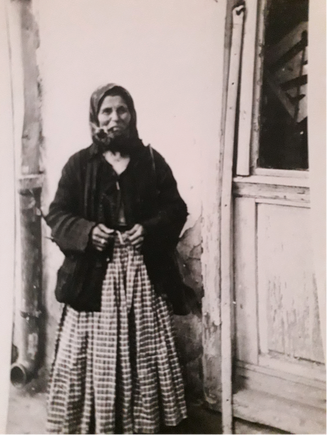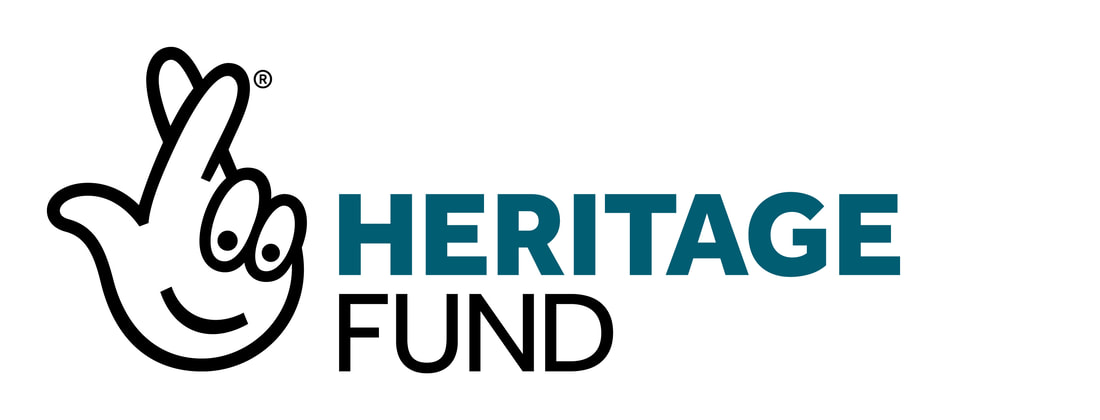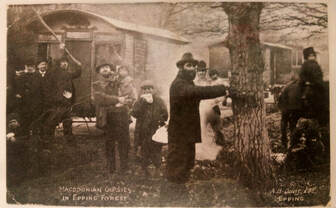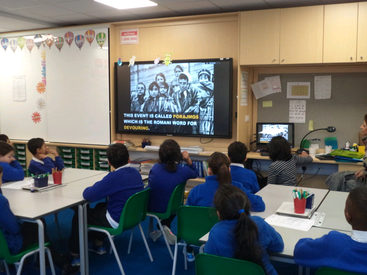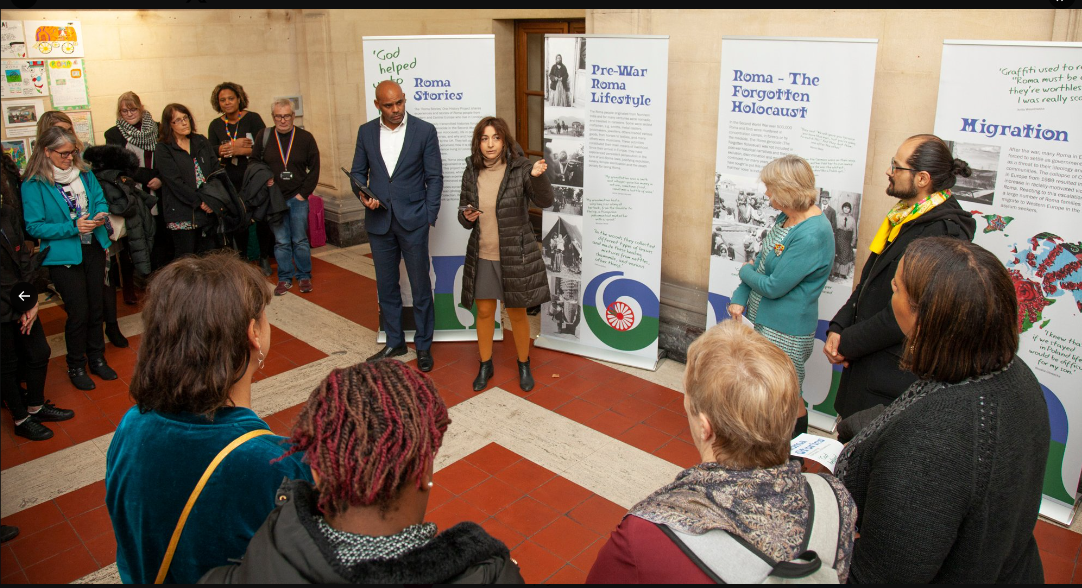Oral History Seminar
Oral History with refugees and migrants – an online lunchtime seminar with guest speakers Tania Gessi and Nairy Abdel Shafy, By Newcastle University Oral History Unit and Collective (NUOHUC), 19th October 2022.
New Roma Oral History website now lauched (May 2020)
Following the work of our "Roma Stories": Roma Oral History Project (see below) we are pleased to say that our new Roma Oral History website has now been launched. You will find interview extracts and introductory information and learning materials for primary schools.
|
The Heritage Lottery Fund has awarded £77,100 to the Roma Support Group for the Roma Oral History Project, which will work with Roma researchers, local community members, London Metropolitan Archives, museums and academic institutions to explore, archive and share the unrecorded stories of Roma refugees and migrants in London. |
Updates on the Roma History Project
You can read about progress of the project on our separate “Roma Stories” blog. You can also keep up-to-date with our most recent news by following us on Twitter at https://twitter.com/OralRoma.
The short film below contains extracts of Roma people's interviews that explore life before the Second World War, persecution during the war, discrimination in home country, migration and life in the UK. This film is part of our 'Roma Stories' Oral History exhibition which will be open at a number of London venues in Autumn 2019.
One of the stories, by Baronita Adam (Romanian Roma), has been published online by one of our partners, the Holocaust Memorial Day Trust.
The BBC World Service's World Update programme broadcast on 18th November 2019 included a feature on the Nazi genocide of Roma and Sinti people in an interview with Senior Curator of the Wiener Holocaust Library, Barbara Warnock. She speaks about the work being done by the Roma Support Group's "Roma Stories" Oral History Project in collecting testimonies of Roma people's experiences in the wartime concentration camps.
One of the stories, by Baronita Adam (Romanian Roma), has been published online by one of our partners, the Holocaust Memorial Day Trust.
The BBC World Service's World Update programme broadcast on 18th November 2019 included a feature on the Nazi genocide of Roma and Sinti people in an interview with Senior Curator of the Wiener Holocaust Library, Barbara Warnock. She speaks about the work being done by the Roma Support Group's "Roma Stories" Oral History Project in collecting testimonies of Roma people's experiences in the wartime concentration camps.
Click the headings below to see further information about the project.
What is the heritage that our project will focus on?
The Project will focus on the unrecorded Oral History of Roma refugees and migrants from East/Central Europe living in London, exploring themes of displacement, sense of belonging and changing identities, including their adoption of their new homeland.
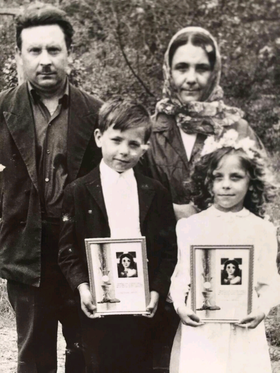 Photo courtesy of Celina Dytlow
Photo courtesy of Celina Dytlow
Main Themes:
We will explore three main themes:
We will explore three main themes:
- Roma Porrajmos and anti-Roma persecution – focusing on individual memories of survivors, as well as memories enshrined within families/ clans’ orally transmitted histories; exploring “remembering” and “forgetting” strategies often used as survival mechanisms within individual families; gathering individual memories of post-war experience of ethnocide (enforced settlement of Roma population in post-war Communist countries in 1960s), as well as individual survival routes during more recent (post-Communist) anti-Roma persecution and discrimination in Europe.
- Migration and Changing Roma Identity – exploring individual and collective experiences of the impact that recent migration from Eastern Europe has had on the changing and evolving Roma identities in Britain – capturing inter-generational perspectives.
- A Sense of Belonging – gathering individual memories and stories which portray a process of integration in the UK; examining “a sense of belonging” as understood and experienced by individual Roma refugees and migrants.
What will the project do?
The Project will seek to promote the ‘voices’ of a group of people that has been often marginalised, ‘hidden’ or written out of mainstream history. By using the Oral History method, the Project will give the Roma community a rare opportunity to capture their knowledge and histories, which have been ‘passed down’ across generations, orally rather than in a written form, before it is lost.
It will involve multiple open-ended interviews, with an emphasis on how individuals themselves interpret, give meaning to and re-construct their lives, paying particular attention to how people’s identities might have shifted and altered over time.
Two Roma Researchers will collect a minimum of 40 oral histories, which will be audio-recorded, transcribed, translated, analysed and extracts will be stored at the London Metropolitan Archives as well as in other London museums. In collaboration with our Project partners we will ensure the quality of the material, its accessibility, longevity, and sustainability.
Two Roma Researchers will collect a minimum of 40 oral histories, which will be audio-recorded, transcribed, translated, analysed and extracts will be stored at the London Metropolitan Archives as well as in other London museums. In collaboration with our Project partners we will ensure the quality of the material, its accessibility, longevity, and sustainability.
|
The Project findings will also be shared and explained through a Digital Teachers’ Resource Pack, produced in collaboration with local schools, which will be disseminated through the Project’s website.
Roma heritage that was previously unknown and inaccessible will be available to the public. |
Why is it important?
It is imperative that we record Roma histories for several reasons.
Firstly, Roma have the lowest life expectancy in Britain, six years less than other socially excluded disadvantaged ethnic minority groups (Triennal Review, Equality and Human Rights Commission, 2010), so the need to capture the older generations’ experience has become quite compelling.
Firstly, Roma have the lowest life expectancy in Britain, six years less than other socially excluded disadvantaged ethnic minority groups (Triennal Review, Equality and Human Rights Commission, 2010), so the need to capture the older generations’ experience has become quite compelling.
Secondly, notwithstanding the overwhelmingly negative press coverage on the Roma ‘problem’, there is a lack of material written, recorded and produced by the Roma themselves, specifically with regards to their sense of identity, belonging, migration to Britain, settlement, contribution and integration in a new host society. It follows that almost all that has been written about Roma (including research) is from a non-Roma perspective and is often experienced as ‘top-down’ by members of the Roma community.
|
Finally, unlike any other ethnic minority groups, where considerable progress has been made in challenging racism and discrimination, the Roma still experience overt racism and discrimination within the UK and Europe (European Commission 2008). Therefore in the context of rising anti-Roma rhetoric (Romaphobia), it is key that Roma refugees and migrants are empowered to share and speak about their heritage now. This is with a view to gain a greater sense of belonging, challenge negative perceptions and prejudices, and help create a more cohesive and fairer society.
|
Partners
We will be delivering this Project in partnership with:
- Department of History, Royal Holloway, University of London (Royal History Society)
- London Metropolitan Archives
- Tavistock Institute
- Holocaust Memorial Day Trust
- Hackney Learning Trust
- Shaftesbury Primary and Belmont Primary Schools, London Borough of Newham and London Borough of Hackney
- Birkbeck College & Institute of Education University of London
- Hackney Library
- Croydon Museum
- Redbridge Museum.
Volunteers
|
We are looking for volunteers to help us with the implementation of this project.
If you would like to volunteer please see the information on our volunteering page. For any further details please contact Tania Gessi, Roma Oral History Project Coordinator, mobile: 07849 860940. |

